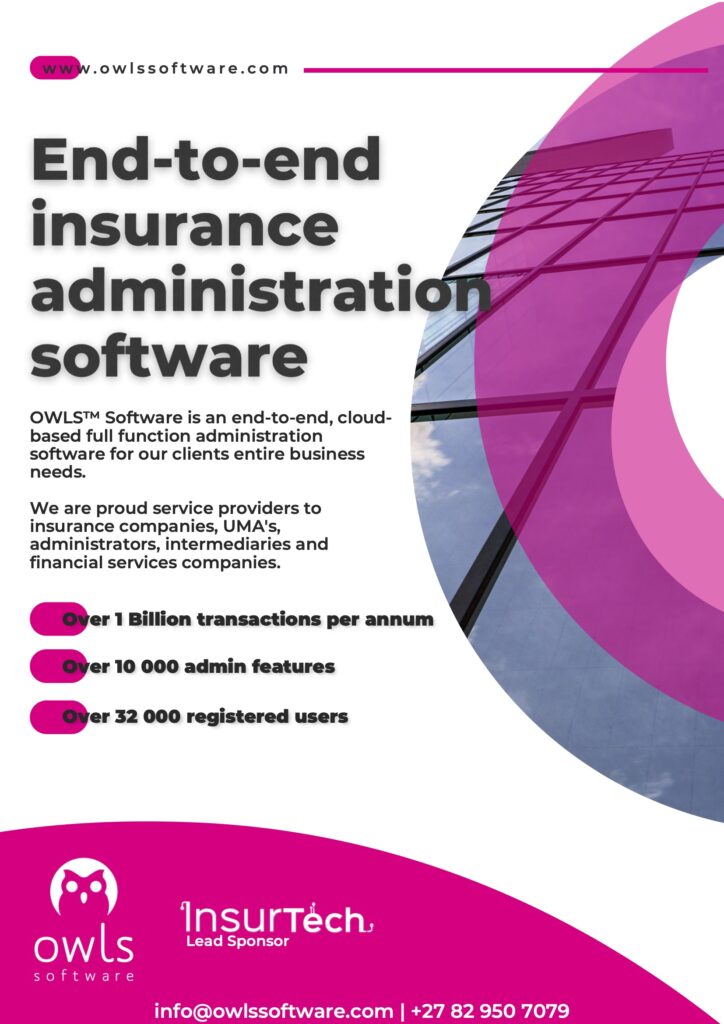By: Tiaan Herselman is the Head of Advice at Old Mutual Wealth
The only thing constant in life is change. This truth really holds a lot of value in the financial services sector. For many years, the financial planning profession has fought to be seen as just that, a “profession”. The evolution of the profession will be in the space of the Professional Financial Practice, with the focus on automation of administration processes, the use of AI in the advice and planning stage and finally in the behavioural sciences space.
You can think of these three elements as the Bermuda Triangle of financial planning. These three elements will swallow financial planning practices whole that do not know how to navigate them effectively in the future. Let’s take a glimpse into both the present and future of our proverbial Bermuda Triangle…
Firstly, let’s talk automation:
Automation offers financial planners tools to improve their services and streamline operations. Key methods of incorporating automation include:
- Client Onboarding: Utilise digital platforms to gather client data, introduce services, and ensure compliance.
- Data Aggregation: Consolidate client financial data from various sources, providing a comprehensive financial overview.
- Portfolio Management: Use investment platforms that auto-rebalance portfolios on your behalf, keeping them aligned with client goals. With more than 1,750 unit trust funds available in SA alone, outsourcing this functionality to a portfolio manager is crucial.
- Client Reporting: Automate creation of investment reports and financial documents for clients.
- Alerts: Set automatic notifications for crucial financial events to keep clients updated.
- Task Management: Implement workflow automation to efficiently manage client service tasks and reviews.
- Document Management: Use cloud storage with organisation features to store client documents securely and accessibly.
- Scheduling: Adopt tools that automate appointment bookings, minimizing scheduling hassles.
- Online Presence: Use automation for consistent content posting on social media platforms.
- Chatbots: Instantly address basic client queries save time by having automated responses for basic client queries that may arise.
Whilst automation enhances efficiency, the personal touch in financial planning remains irreplaceable. It should complement, not substitute, the client-planner relationship.

OWLS™ Insurance Software
An end-to-end, cloud-based full function administration software for our clients entire business needs.
We are proud service providers to insurance companies, UMA’s, administrators, intermediaries and financial services companies.
Secondly, let’s discuss the future potential use of AI in the advice and planning stages of client engagements and consider the importance of behavioural finance in the future. Artificial Intelligence (AI) now and in the future will offer financial planners an array of advanced tools to enhance their services and improve their overall financial planning. Behavioral finance studies the psychological factors affecting financial decisions. For financial planners, leveraging AI and behavioural finance in the future can be achieved as follows:
- Managing Emotions: Planners can guide clients through emotionally-charged financial situations, ensuring decisions aren’t purely emotional.
- Addressing Biases: By identifying biases like loss aversion or overconfidence, planners can tailor advice to counteract these tendencies.
- Improved Financial Planning Software: These tools often come with features that automate scenario analyses, tax projections, and retirement planning, making it easier for advisors to deliver comprehensive planning to clients.
- Improved Communication: Knowing behavioral biases helps planners communicate more effectively.
- Educating Clients: Teach clients about their biases, making them more informed and engaged in the planning process.
- Framing: Presenting information with a positive or negative focus can influence decision-making.
- Accountability: Regular reviews can keep clients on track, countering tendencies to deviate from plans.
- Simplified Choices: Limiting options prevents decision overload, making choices clearer for clients.
- Data Analysis: AI can predict client trends and analyse client spending for tailored advice.
- Personalised Advice: AI processes client data to provide bespoke financial recommendations.
- Hybrid-advice offering for clients with simplified financial planning needs: Automate financial planning and goal tracking for clients with simple financial planning needs, e.g. planning for kids’ education or holiday home.
- Education: AI-driven content educates clients for informed decisions.
- Continuous Learning: AI adapts to new data, keeping advice relevant.
Incorporating these tech advancements enhances a planner’s offerings, but the personal touch in financial planning remains vital. Technology should complement, not replace, human intuition and empathy. Furthermore, incorporating behavioural finance allows financial planners to provide more tailored, psychologically-aware advice, leading to better outcomes and stronger client relationships.

